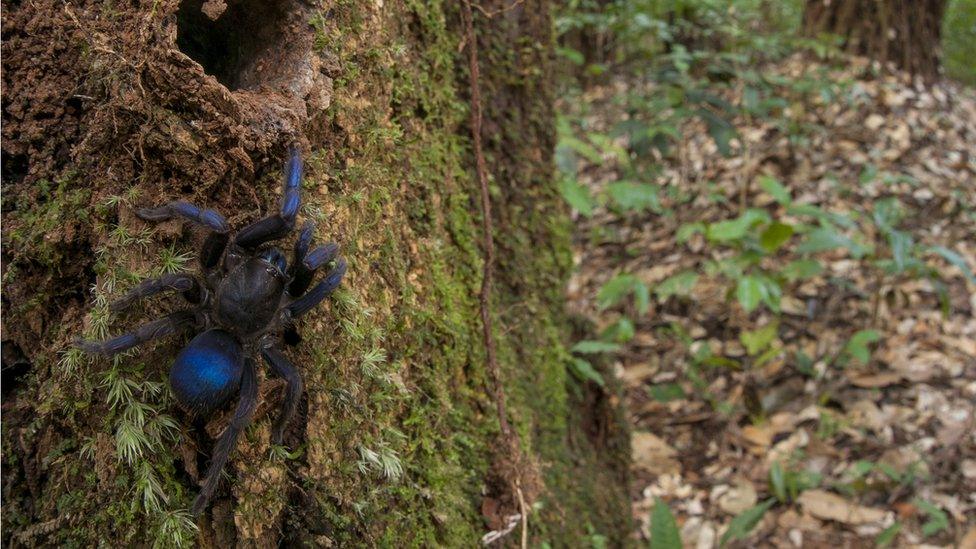Guyana election: Top court orders partial recount of votes
- Published
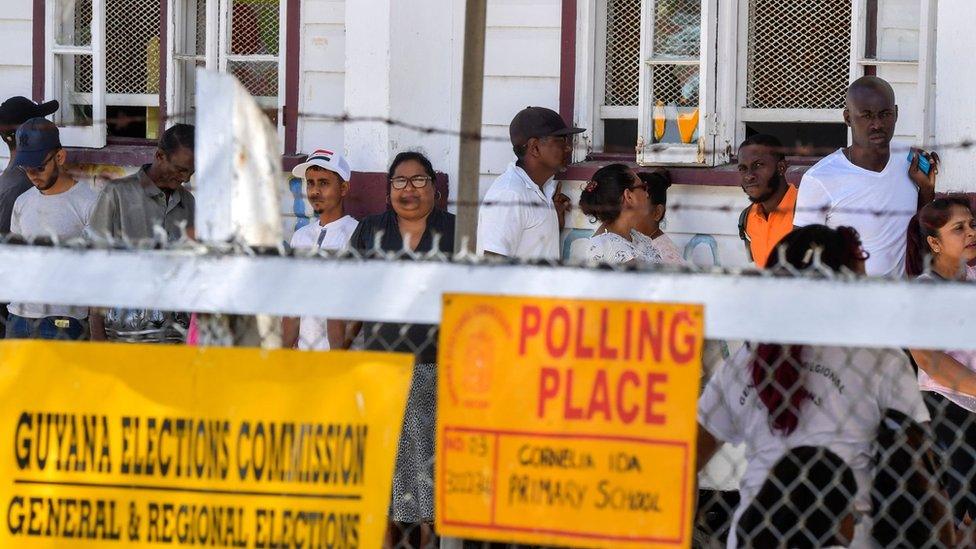
Tensions have been high in the country since the disputed election on 2 March
The head of Guyana's Supreme Court has ordered a partial recount of votes in last week's disputed general election.
The ruling is a major victory for the opposition, which has accused the government of fraud in favour of incumbent President David Granger.
Judge Roxane George also ruled the electoral body should not declare a winner before the recount is finished.
The vote, which was held on 2 March, will decide who is in power when huge new oil reserves are explored.
Mr Granger, of the People's National Congress - Reform (PNCR) coalition, is facing Irfaan Ali of the opposition People's Progressive Party (PPP).
Both sides have claimed victory and tension has been running high as a result. Violent protests on the weekend left one person dead and several injured.
The judge ruled that election officials in an area known as Region Four must resume verification of the votes on Thursday. The PPP said that the results had been inflated to favour Mr Granger.
The court ruling came as a delegation of several Caribbean prime ministers arrived in the South American country, one of the poorest in the region, to help resolve the crisis.
Politics have been largely divided along ethnic lines with the Afro-Guyanese community mainly supporting President Granger and the Indo-Guyanese community - the descendants of Indian indentured labourers - backing the PPP.
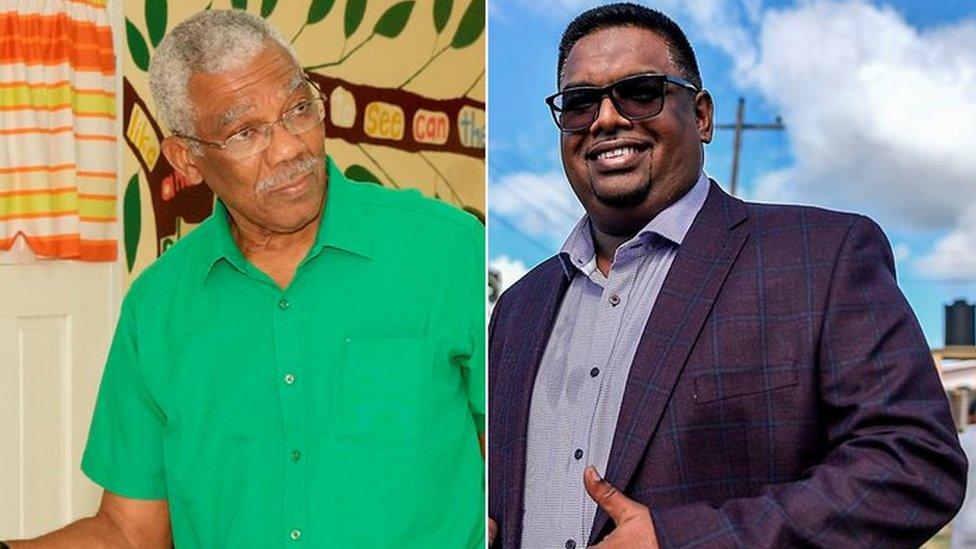
Incumbent President David Granger (left) is facing rival Irfaan Ali
The election campaign was dominated by how to use the windfall from oil finds which could put Guyana among the top 10 oil producers in the world. Production in the offshore oil fields - estimated to contain at least eight billion barrels - started last year.
Mr Granger, a retired army general who came to power in 2015, signed a controversial contract with the US oil company ExxonMobil, the main foreign firm exploring the fields off Guyana's coast.
Mr Ali, a former housing minister, has promised to renegotiate the deal in more favourable terms for the country, a former British colony with a population of 780,000 people.
- Published5 March 2020
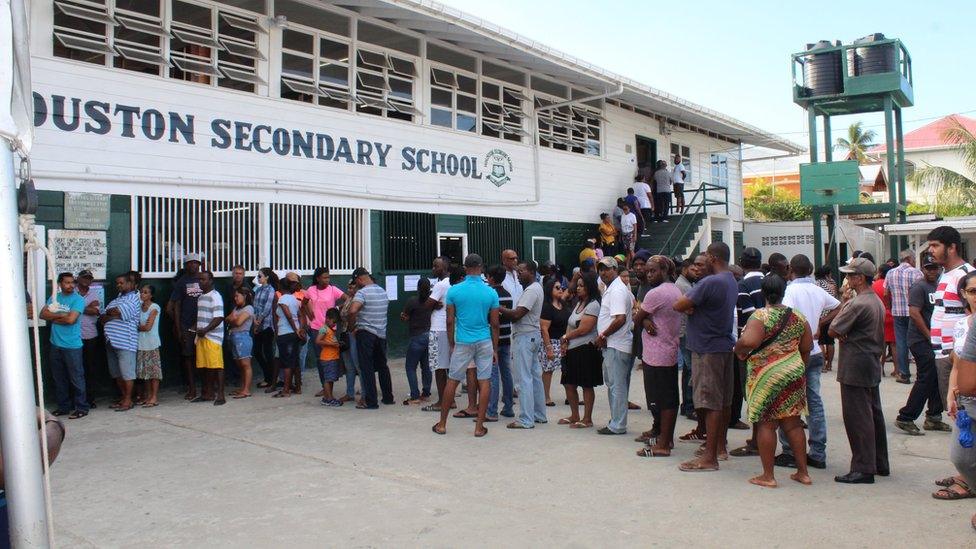
- Published9 May 2019
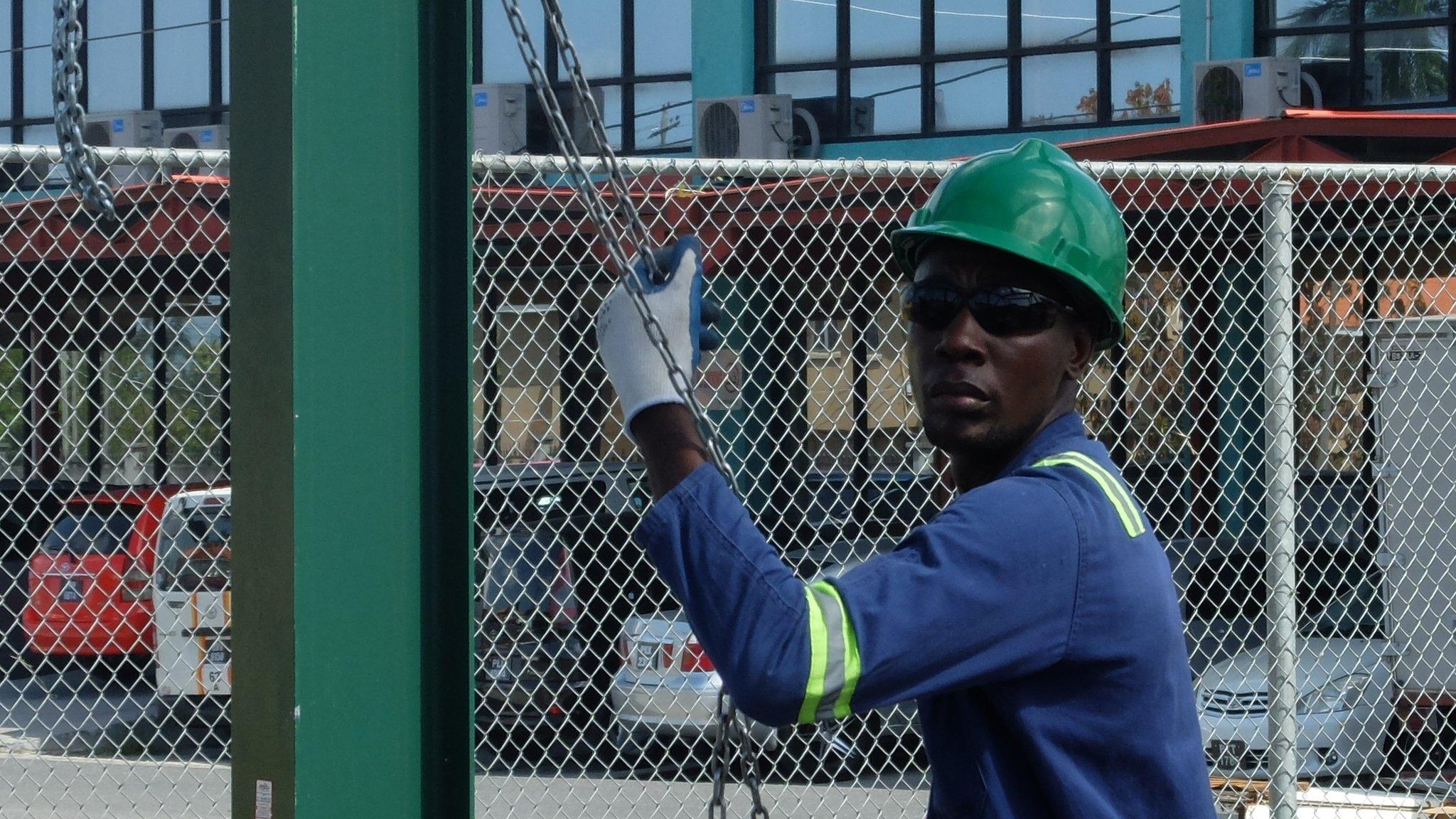
- Published28 December 2017
